
Beyond Borders: How Israeli Impunity Fuels Regional Repression
On July 19, the International Court of Justice declared that Israel’s occupation of the Gaza Strip and the West Bank, including East Jerusalem, is unlawful, along with the associated settlement regime, annexation, and use of natural resources. The Court added that Israel’s legislation and measures violate the international prohibition on racial segregation and apartheid.
Meanwhile, the Israeli government, which historically has operated with impunity for violent, undemocratic practices, is arresting and oppressing citizens who express disapproval and dissent over the ongoing war on Gaza and suppressing demands for human rights and accountability. Emboldened by Israel’s impunity, authorities throughout the Middle East and North Africa are similarly repressing free expression and assembly, stifling local hope and demand for democratic reform. In addition, direct military escalations in Lebanon, Yemen, Iraq, Syria, and Iran, have fueled growing instability and authoritarian repression across the region.
Please join the Middle East Democracy Center as the Democracy Matters Initiative (DMI) convenes a panel of experts from its DMI Advisory Group to discuss how the Israeli government’s repression of its own people and its human rights violations against Palestinians embolden other regional governments to oppress their own citizens. They will explore how a culture of impunity is stifling demands for democratic reform across the region and will propose innovative ways to instead strengthen civil society and democratic reform, amplify the voices of pro-democracy constituents, and ensure justice and accountability for human rights violations and war crimes.
Would you like to submit a question for our panelists? Please email it to media@mideastdc.org.
Speakers:
- Alaa Sayeg
DMI Advisory Group Member (Lebanon);
Fellow, Stanford Center for Democracy, Development, and the Rule of Law;
Founder, Ryzomes Social Enterprise - Nareman Shehadeh Zoabi
DMI Advisory Group Member (Palestine & Israel);
Human Rights Attorney, Adalah – The Legal Center for Arab Minority Rights in Israel
Moderator:
- Yasmin Omar
DMI Director, MEDC;
International human rights lawyer
Bios:
Alaa Sayeg is a Lebanese political figure specializing in socio-economic innovation. He is notably known for his contributions to democratic parliamentary reform and policy development in Lebanon and the Middle East. Sayeg is a fellow at the Stanford Center for Democracy, Development, and the Rule of Law. He’s the Founder of Ryzomes Social Enterprise, a vital partner to governmental organizations and prominent international organizations like the United Nations, Oxfam, Friedrich Ebert, and Heinrich Böll.
Nareman Shehadeh-Zoabi is a Palestinian citizen of Israel. She holds an LLB in Law and a BA in Psychology from the Hebrew University in Jerusalem, and an MA in Criminology from Haifa University. Since 2018, she has been serving as a Human Rights Attorney at Adalah – The Legal Center for Arab Minority Rights in Israel. Initially, Nareman worked in the Social and Economic Rights Unit, focusing on advocacy for marginalized groups, particularly the Bedouin community in the unrecognized villages in the southern Naqab region who are facing threats of evacuation. In 2021, she transitioned to the Civil and Political Rights Unit, dedicated to promoting Palestinians’ civil and political rights, challenging systemic discrimination, and advocating for equal protection under Israeli and international law. Her primary focus has been on the criminal justice project, handling cases related to arbitrary detention, prisoners’ rights, freedom of speech-related offenses, and accountability.
Yasmin Omar is the director of the Democracy Matters Initiative at MEDC. She is an international human rights lawyer with a dedicated career focused on defending victims of human rights violations. Having practiced law in Egypt for a decade, she relocated to the United States in 2017. Before joining MEDC, Omar served as a consultant with the United Nations Team of Experts on Rule of Law and Sexual Violence in Conflict. Additionally, she held positions as the UN and Regional Mechanisms Manager at the Committee for Justice and as a Legal Associate at the Tahrir Institute for Middle East Policy. Omar earned an LLM in international law from Syracuse University College of Law and holds a bachelor’s degree in law from Cairo University.
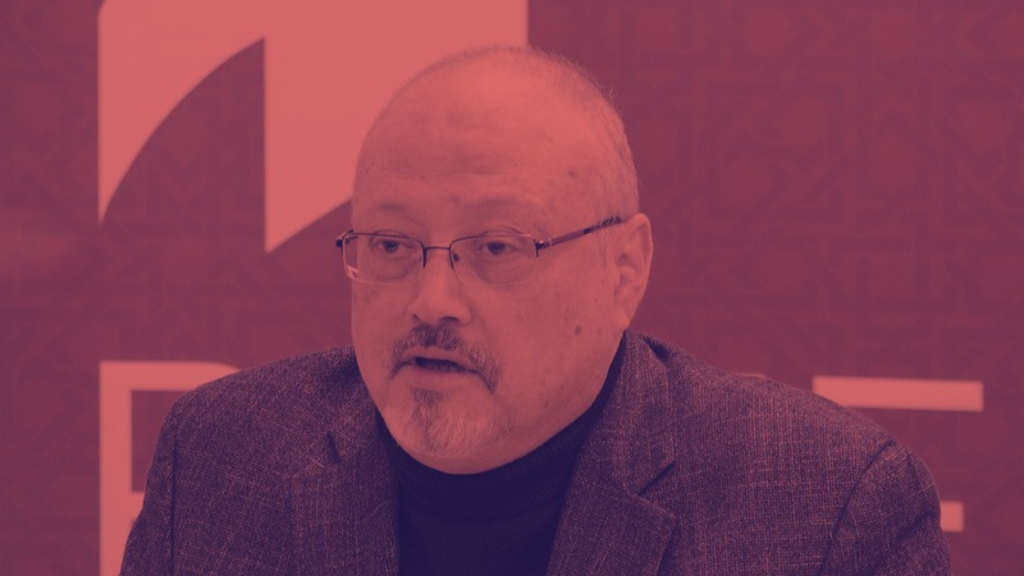

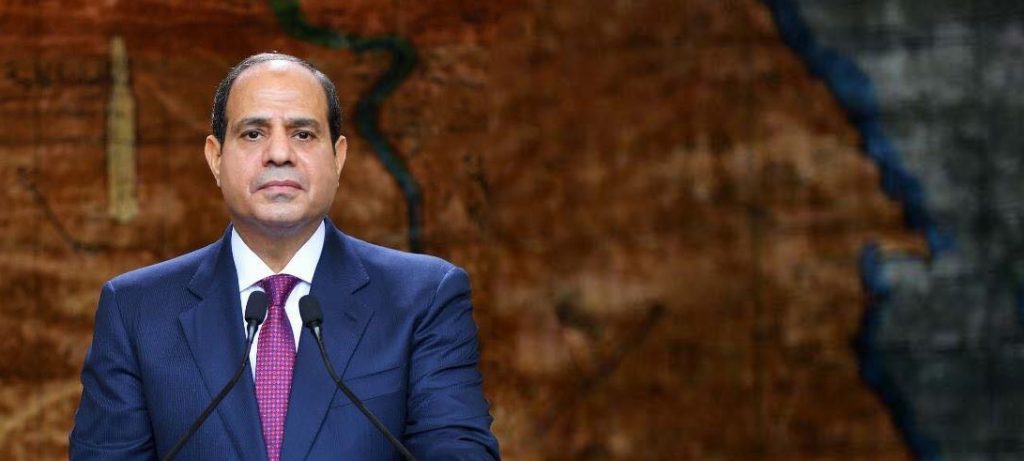
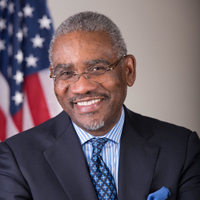
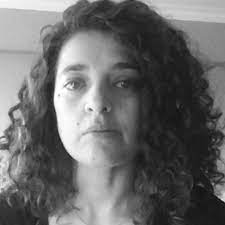
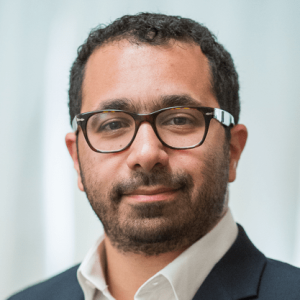

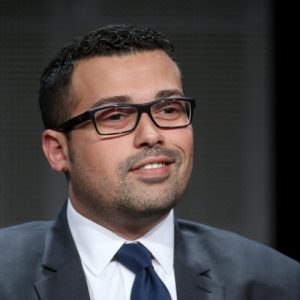


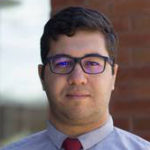

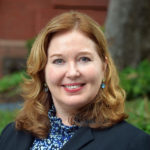
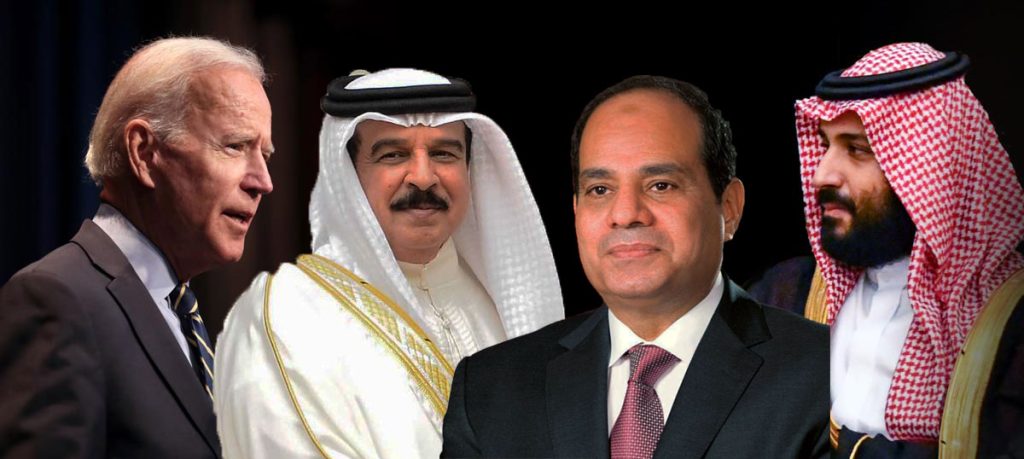
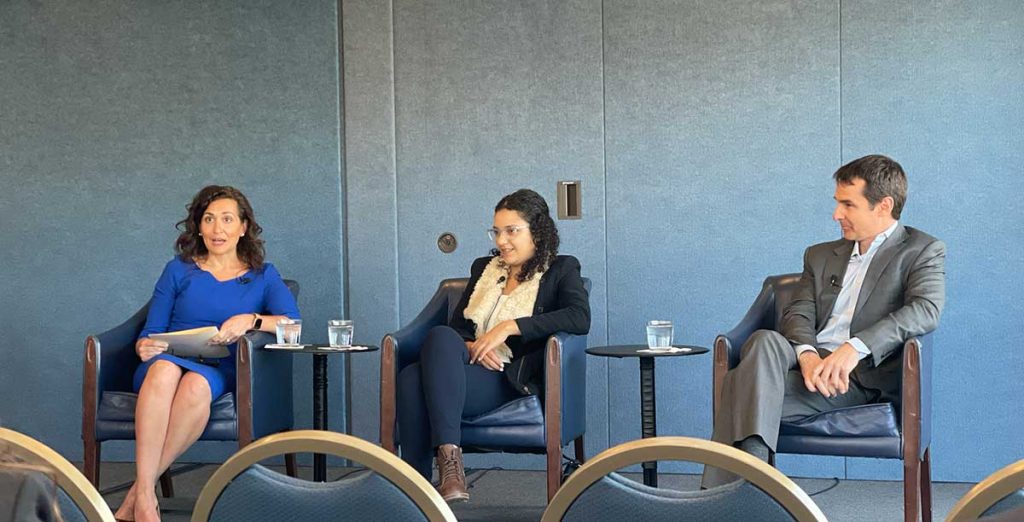
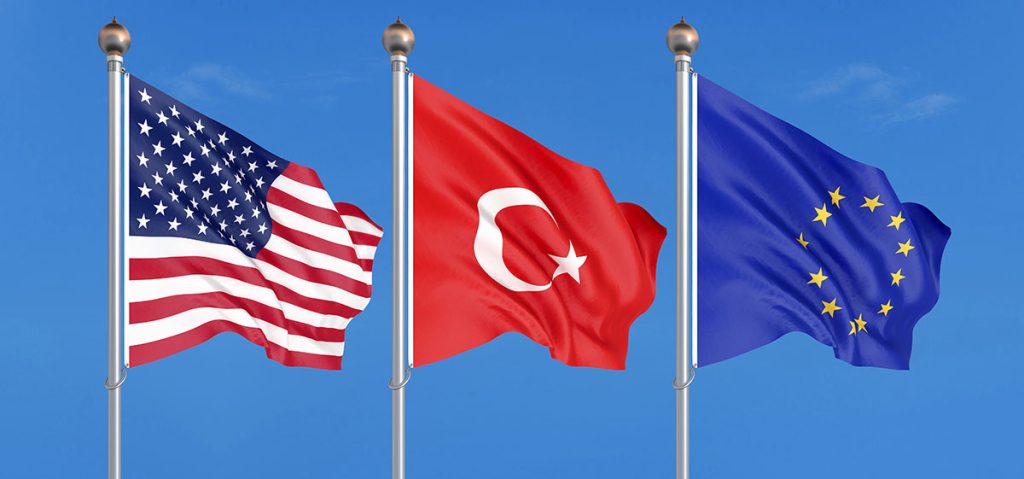

 Merve Tahiroğlu is POMED’s Turkey Program Coordinator. Prior to joining POMED in September 2019, Merve was a research analyst at the Foundation for Defense of Democracies, where she focused on Turkey’s domestic politics, foreign policy, and relationship with Washington. She has authored several monographs and published articles in outlets such as Foreign Affairs, Washington Post, Wall Street Journal, Foreign Policy, Politico, and Huffington Post.
Merve Tahiroğlu is POMED’s Turkey Program Coordinator. Prior to joining POMED in September 2019, Merve was a research analyst at the Foundation for Defense of Democracies, where she focused on Turkey’s domestic politics, foreign policy, and relationship with Washington. She has authored several monographs and published articles in outlets such as Foreign Affairs, Washington Post, Wall Street Journal, Foreign Policy, Politico, and Huffington Post. Özge Zihnioğlu is a lecturer at the University of Liverpool’s Department of Politics. Her research focuses on Turkish civil society, activism, EU-Turkey relations, and EU civil society support. She is the author of EU-Turkey Relations: Civil Society and Depoliticization (Routledge, 2020) and European Union Civil Society Policy and Turkey: A Bridge Too Far? (Palgrave Macmillan, 2013). She is a member of the Carnegie Endowment for International Peace’s Civic Research Network, and an executive committee member of Turkey’s Young Academy Working Group.
Özge Zihnioğlu is a lecturer at the University of Liverpool’s Department of Politics. Her research focuses on Turkish civil society, activism, EU-Turkey relations, and EU civil society support. She is the author of EU-Turkey Relations: Civil Society and Depoliticization (Routledge, 2020) and European Union Civil Society Policy and Turkey: A Bridge Too Far? (Palgrave Macmillan, 2013). She is a member of the Carnegie Endowment for International Peace’s Civic Research Network, and an executive committee member of Turkey’s Young Academy Working Group. Amy Hawthorne (moderator) is POMED’s Deputy Director for Research. Before joining POMED in 2015, Ms. Hawthorne was a senior fellow at the Atlantic Council’s Rafik Hariri Center for the Middle East. In 2011-12, she served as Senior Advisor and then Egypt Coordinator in the Near Eastern Affairs Bureau at the Department of State. Her other previous positions include executive director of the Hollings Center for International Dialogue in Istanbul and Washington, D.C., fellow at the Carnegie Endowment for International Peace, and senior program officer for the Middle East at the International Foundation for Electoral Systems.
Amy Hawthorne (moderator) is POMED’s Deputy Director for Research. Before joining POMED in 2015, Ms. Hawthorne was a senior fellow at the Atlantic Council’s Rafik Hariri Center for the Middle East. In 2011-12, she served as Senior Advisor and then Egypt Coordinator in the Near Eastern Affairs Bureau at the Department of State. Her other previous positions include executive director of the Hollings Center for International Dialogue in Istanbul and Washington, D.C., fellow at the Carnegie Endowment for International Peace, and senior program officer for the Middle East at the International Foundation for Electoral Systems. 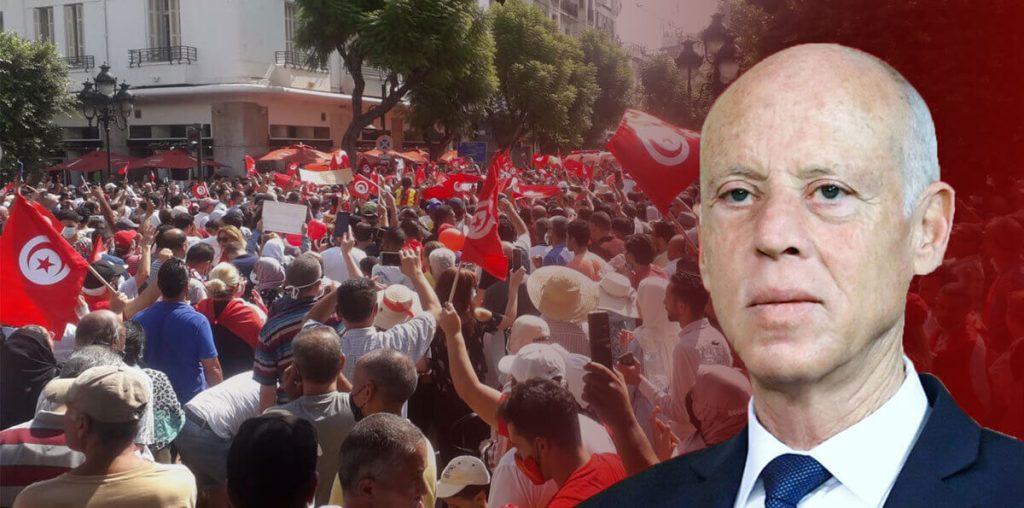


 Monica Marks is a professor at New York University Abu Dhabi (NYUAD) and a scholar of Islamist movements, gender, and politics in the Middle East and North Africa. Her research focuses on broad topics across the region and beyond, but especially in regard to the tensions between pluralism and state power in the two countries where she’s lived longest: Tunisia and Turkey.
Monica Marks is a professor at New York University Abu Dhabi (NYUAD) and a scholar of Islamist movements, gender, and politics in the Middle East and North Africa. Her research focuses on broad topics across the region and beyond, but especially in regard to the tensions between pluralism and state power in the two countries where she’s lived longest: Tunisia and Turkey.

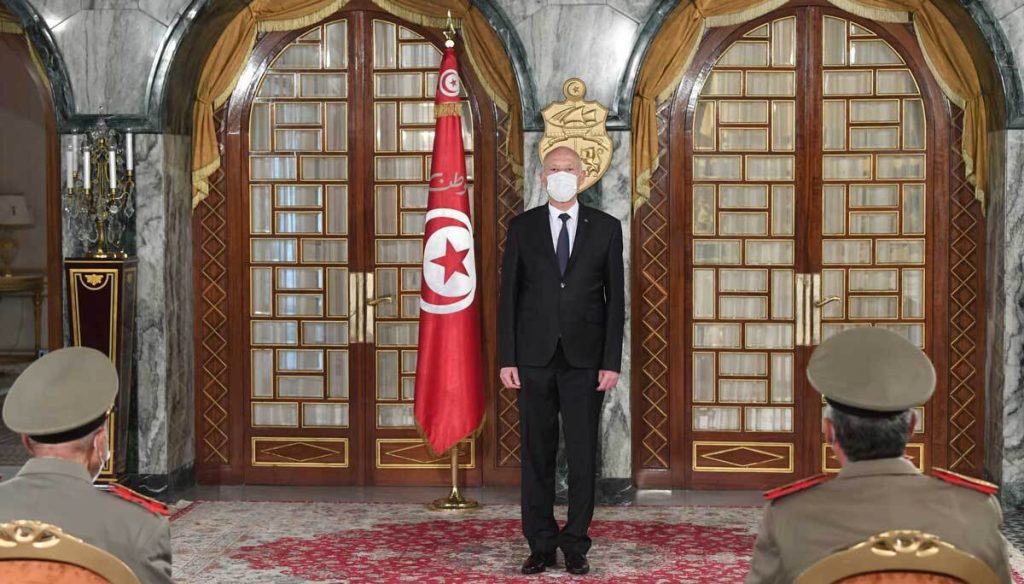
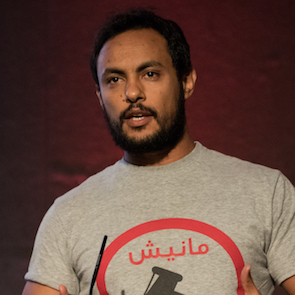
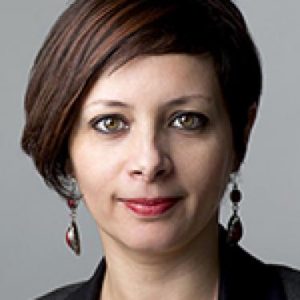 Amna Guellali is Amnesty International’s Deputy Regional Director for the Middle East and North Africa, based in Tunis. Previously, she was the director of the Tunis office of Human Rights Watch and was responsible for research on Tunisia and Algeria in the organization’s Middle East and North Africa division, investigating human rights abuses in both countries. Before joining Human Rights Watch, Dr. Guellali worked as an analyst at the office of the Prosecutor of the International Criminal Court in the Hague and as Senior Researcher at the department of international law at the Asser Institute. She has also served as legal officer at the regional delegation of the International Committee of the Red Cross in Tunis. Dr. Guellali holds a PhD from the European University Institute in Florence. In 2017, she was awarded POMED’s Leaders for Democracy Award.
Amna Guellali is Amnesty International’s Deputy Regional Director for the Middle East and North Africa, based in Tunis. Previously, she was the director of the Tunis office of Human Rights Watch and was responsible for research on Tunisia and Algeria in the organization’s Middle East and North Africa division, investigating human rights abuses in both countries. Before joining Human Rights Watch, Dr. Guellali worked as an analyst at the office of the Prosecutor of the International Criminal Court in the Hague and as Senior Researcher at the department of international law at the Asser Institute. She has also served as legal officer at the regional delegation of the International Committee of the Red Cross in Tunis. Dr. Guellali holds a PhD from the European University Institute in Florence. In 2017, she was awarded POMED’s Leaders for Democracy Award.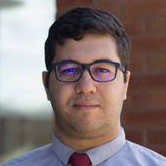 Mohamed-Dhia Hammami is an independent researcher and analyst. After growing up in the suburbs of Tunis under the Ben Ali regime, Mr. Hammami took part in the 2011 revolution and then got involved in public life as a student activist at the University of Tunis and as a parliamentary assistant in the National Constituent Assembly. He subsequently worked as a journalist at Nawaat and as a researcher and a consultant for IWatch, the Truth and Dignity Commission, the Natural Resources Governance Institute, Lawyers Without Borders, and the University of York on corruption and other natural resources-related issues. Mr. Hammami received his BA from Wesleyan University. This fall, he will begin a PhD program at Syracuse University’s Maxwell School of Citizenship and Public Affairs.
Mohamed-Dhia Hammami is an independent researcher and analyst. After growing up in the suburbs of Tunis under the Ben Ali regime, Mr. Hammami took part in the 2011 revolution and then got involved in public life as a student activist at the University of Tunis and as a parliamentary assistant in the National Constituent Assembly. He subsequently worked as a journalist at Nawaat and as a researcher and a consultant for IWatch, the Truth and Dignity Commission, the Natural Resources Governance Institute, Lawyers Without Borders, and the University of York on corruption and other natural resources-related issues. Mr. Hammami received his BA from Wesleyan University. This fall, he will begin a PhD program at Syracuse University’s Maxwell School of Citizenship and Public Affairs. Stephen McInerney (moderator) is the executive director of the Project on Middle East Democracy (POMED). Prior to joining POMED in 2007, he had spent six years living, working, and studying in the Middle East and North Africa—two years each in Egypt, Lebanon, and Qatar. He spent two years in a master’s degree program in the Center for Arab and Middle Eastern Studies at the American University of Beirut, one year on a fellowship at the Center for Arab Study Abroad (CASA) at the American University in Cairo, and three years teaching at Cairo American College and the American School of Doha. He received a master’s degree from Stanford University and is fluent in Arabic.
Stephen McInerney (moderator) is the executive director of the Project on Middle East Democracy (POMED). Prior to joining POMED in 2007, he had spent six years living, working, and studying in the Middle East and North Africa—two years each in Egypt, Lebanon, and Qatar. He spent two years in a master’s degree program in the Center for Arab and Middle Eastern Studies at the American University of Beirut, one year on a fellowship at the Center for Arab Study Abroad (CASA) at the American University in Cairo, and three years teaching at Cairo American College and the American School of Doha. He received a master’s degree from Stanford University and is fluent in Arabic.
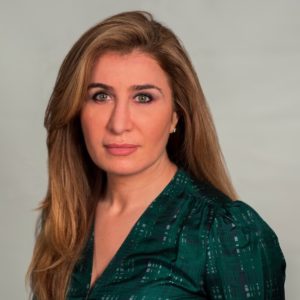 Bessma Momani is Full Professor of Political Science and Assistant Vice-President of Research and International in the Office of Research at the University of Waterloo. She is also a senior fellow at the Centre for International Governance and Innovation (CIGI) and a nonresident fellow at the Arab Gulf States Institute of Washington. Dr. Momani has previously been a nonresident senior fellow at the Brookings Institution and the Stimson Center, and was a visiting scholar at Georgetown University’s Mortara Center. She was a 2015 Fellow of the Pierre Elliott Trudeau Foundation and a 2011-12 Fulbright Scholar. She is a regular contributor to national and international media on Arab politics and on global economic governance issues. She has written editorials for the New York Times, Economist, Globe and Mail, Toronto Star, Ottawa Citizen, among others. Dr. Momani received her BA from the University of Toronto, MA from the University of Guelph, and PhD from the University of Western Ontario.
Bessma Momani is Full Professor of Political Science and Assistant Vice-President of Research and International in the Office of Research at the University of Waterloo. She is also a senior fellow at the Centre for International Governance and Innovation (CIGI) and a nonresident fellow at the Arab Gulf States Institute of Washington. Dr. Momani has previously been a nonresident senior fellow at the Brookings Institution and the Stimson Center, and was a visiting scholar at Georgetown University’s Mortara Center. She was a 2015 Fellow of the Pierre Elliott Trudeau Foundation and a 2011-12 Fulbright Scholar. She is a regular contributor to national and international media on Arab politics and on global economic governance issues. She has written editorials for the New York Times, Economist, Globe and Mail, Toronto Star, Ottawa Citizen, among others. Dr. Momani received her BA from the University of Toronto, MA from the University of Guelph, and PhD from the University of Western Ontario. Curtis Ryan is Professor of Political Science at Appalachian State University. Dr. Ryan served as a 1992-93 Fulbright Scholar at the Center for Strategic Studies, University of Jordan and was twice named a Peace Scholar by the United States Institute of Peace. In addition to his contributions to Middle East Report, his articles have been published in the Middle East Journal, the British Journal of Middle East Studies, Studies in Ethnicity and Nationalism, World Politics Review, Arab Studies Quarterly, Israel Affairs, Orient, Southeastern Political Review, Journal of Third World Studies, Middle East Policy, and the Journal of Middle East Law and Governance. He is the author of three books: Jordan in Transition: From Hussein to Abdullah (2002), Inter-Arab Alliances: Regime Security and Jordanian Foreign Policy (2009) and Jordan and the Arab Uprisings – Regime Survival and Politics Beyond the State (2018). He received his BA in History and Political Science from Drew University and his MA and PhD in Political Science from the University of North Carolina at Chapel Hill.
Curtis Ryan is Professor of Political Science at Appalachian State University. Dr. Ryan served as a 1992-93 Fulbright Scholar at the Center for Strategic Studies, University of Jordan and was twice named a Peace Scholar by the United States Institute of Peace. In addition to his contributions to Middle East Report, his articles have been published in the Middle East Journal, the British Journal of Middle East Studies, Studies in Ethnicity and Nationalism, World Politics Review, Arab Studies Quarterly, Israel Affairs, Orient, Southeastern Political Review, Journal of Third World Studies, Middle East Policy, and the Journal of Middle East Law and Governance. He is the author of three books: Jordan in Transition: From Hussein to Abdullah (2002), Inter-Arab Alliances: Regime Security and Jordanian Foreign Policy (2009) and Jordan and the Arab Uprisings – Regime Survival and Politics Beyond the State (2018). He received his BA in History and Political Science from Drew University and his MA and PhD in Political Science from the University of North Carolina at Chapel Hill.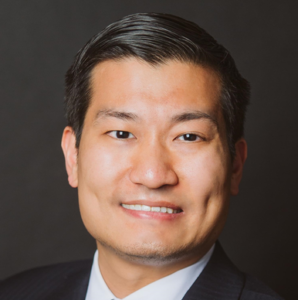 Sean Yom is Associate Professor of Political Science at Temple University and Senior Fellow in the Middle East Program at the Foreign Policy Research Institute. He is a specialist on regimes and governance in the Middle East, especially in Arab monarchies like Jordan, Kuwait, and Morocco. Dr. Yom’s research engages topics of authoritarian politics, democratic reforms, institutional stability, and economic development in these countries, as well as their implications for U.S. foreign policy. His publications include the books From Resilience to Revolution: How Foreign Interventions Destabilize the Middle East (2016) and Government and Politics of the Middle East and North Africa, 9th edition (2020); articles in print journals such as Comparative Political Studies, European Journal of International Relations, Studies in Comparative International Development, and Journal of Democracy; and contributions in online venues like Foreign Affairs, Middle East Eye, and the Washington Post. Dr. Yom also advises country-level work with international NGOs, law firms, and sovereign clients. Dr. Yom received his BA from Brown University and his PhD from Harvard University.
Sean Yom is Associate Professor of Political Science at Temple University and Senior Fellow in the Middle East Program at the Foreign Policy Research Institute. He is a specialist on regimes and governance in the Middle East, especially in Arab monarchies like Jordan, Kuwait, and Morocco. Dr. Yom’s research engages topics of authoritarian politics, democratic reforms, institutional stability, and economic development in these countries, as well as their implications for U.S. foreign policy. His publications include the books From Resilience to Revolution: How Foreign Interventions Destabilize the Middle East (2016) and Government and Politics of the Middle East and North Africa, 9th edition (2020); articles in print journals such as Comparative Political Studies, European Journal of International Relations, Studies in Comparative International Development, and Journal of Democracy; and contributions in online venues like Foreign Affairs, Middle East Eye, and the Washington Post. Dr. Yom also advises country-level work with international NGOs, law firms, and sovereign clients. Dr. Yom received his BA from Brown University and his PhD from Harvard University.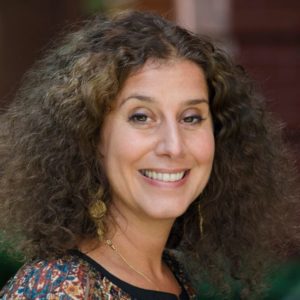 Arwa Shobaki is POMED’s Managing Director. She has spent her career dedicated to the nonprofit sector, helping to manage, design, and lead Middle East and North Africa rights-based initiatives. She has worked with the International Organization for Migration, American Bar Association Rule of Law Initiative, Club of Madrid, and the International Commission of Jurists. Her work has focused primarily on supporting freedom of association and expression and on promoting democratic policies and principles in Bahrain, Egypt, Jordan, Morocco, Tunisia, and Yemen. Prior to joining POMED in 2013, Shobaki worked with the Open Society Justice Initiative and as a summer associate with the Center for National Security Studies, where she focused on freedom of information and expression research. She received her MA in Middle Eastern Studies from the University of Texas at Austin, LLB from the University of Edinburgh, and LLM in Law and Government from the Washington College of Law. She began her career as an anthropology major and Peace Corps Volunteer in Mauritania.
Arwa Shobaki is POMED’s Managing Director. She has spent her career dedicated to the nonprofit sector, helping to manage, design, and lead Middle East and North Africa rights-based initiatives. She has worked with the International Organization for Migration, American Bar Association Rule of Law Initiative, Club of Madrid, and the International Commission of Jurists. Her work has focused primarily on supporting freedom of association and expression and on promoting democratic policies and principles in Bahrain, Egypt, Jordan, Morocco, Tunisia, and Yemen. Prior to joining POMED in 2013, Shobaki worked with the Open Society Justice Initiative and as a summer associate with the Center for National Security Studies, where she focused on freedom of information and expression research. She received her MA in Middle Eastern Studies from the University of Texas at Austin, LLB from the University of Edinburgh, and LLM in Law and Government from the Washington College of Law. She began her career as an anthropology major and Peace Corps Volunteer in Mauritania.